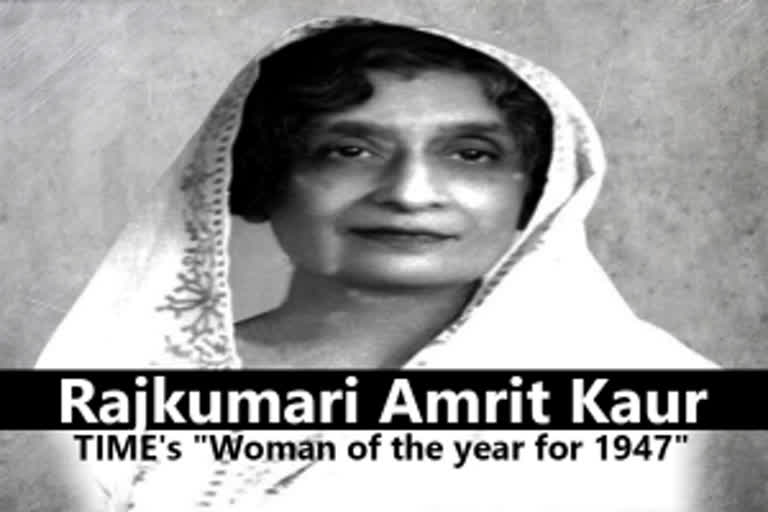New Delhi: India's first Health Minister and torchbearer of women's rights, Rajkumari Amrit Kaur, has been accorded a revered place in TIME's magazine's list of the 100 most influential women "who were often overshadowed".
The magazine named Kaur the "Woman of the year for 1947" for "championing an independent India" and helping the country break free from its colonial ties and oppressive societal norms.
India's first Health Minister Rajkumari Amrit Kaur features in TIME's '100 women of the year' Born in 1880 in Punjab's royal family, the princess completed her education from Oxford and after coming to India, got fascinated by the teachings of Mahatma Gandhi. In 1930, she left the life of luxury and assisted Gandhi as a secretary.
After the country released itself from the clutches of British rule in 1947, she became the first woman in the independent India to hold a cabinet post of a health minister.
As a minister, she laid the foundation of the All India Institute of Medical Sciences (AIIMS), founded the Indian Council for Child Welfare and extensively campaigned to prevent malaria in the country.
She also donated her ancestral property in Shimla, a large mansion known as " Manorville to AIIMS as a holiday and rest home for its nurses.
She also tackled issues like Devdasi and purdah system, pushed for women's education, their right to vote and divorce.
Although Kaur advocated for equality, she was not in favour of reservations for women and believed that universal adult franchise would open the doors for women to enter into the legislative and administrative institutions of the country. In light of this, she believed that there was no place left for reservation of seats.
She also served as the president of the Indian Leprosy Association and the Tuberculosis Association, vice-president of the International Red Cross Society and chief commissioner of the St. John’s Ambulance Brigade of India.
In 1950 she was elected as the president of the World Health Assembly - the forum through the World Health Organization( WHO ) is governed. She was first Asian to hold the post.
Kaur breathed her last at the age of 75 in 1964 and was cremated as per the Sikh rituals even though she was a practising catholic.
(With inputs from IANS)
Also Read:Int'l Women's Day: Here's a special conversation with womenfolk of ETV Bharat
